Filter by
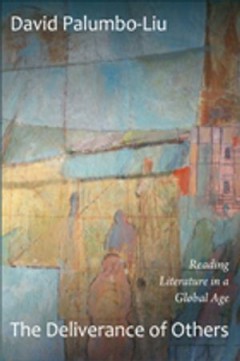
The Deliverance of Others : Reading Literature in a Global Age
The Deliverance of Others is a compelling reappraisal of the idea that narrative literature can expand readers' empathy. What happens if, amid the voluminous influx of otherness facilitated by globalization, we continue the tradition of valorizing literature for bringing the lives of others to us, admitting them into our world and valuing the difference that they introduce into our lives? In th…
- Edition
- -
- ISBN/ISSN
- 9780822352501
- Collation
- 240 halaman
- Series Title
- -
- Call Number
- 800 PAL d
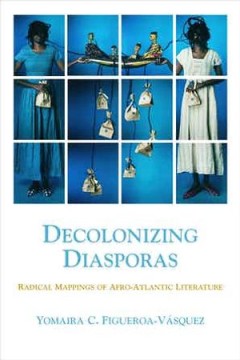
Decolonizing Diasporas : Radical Mappings of Afro-Atlantic Literature
Decolonizing Diasporas proposes a new way to read the literary and cultural productions of the Afro-Atlantic. Mapping literature from Spanish-speaking Sub-Saharan African and Afro-Latinx Caribbean diasporas, Figueroa-Vásquez argues that the works of diasporic writers and artists offer ways of imagining new worldviews which dismantle the logics of colonial modernity. Utilizing women of color fe…
- Edition
- -
- ISBN/ISSN
- 9780810142435
- Collation
- 304 halaman
- Series Title
- -
- Call Number
- 800 FIG d
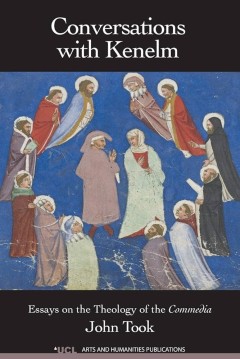
Conversations with Kenelm : Essays on the Theology of the Commedia
In a celebratory moment of the Paradiso, Dante has Thomas go round the circle of sage spirits identifying each in turn in point of proper calling and confirming how it is that self is everywhere present to the other-than-self as a co-efficient of being in the endless and endlessly varied instantiation of that being. The image, at once perfectly Dantean and perfectly resplendent, underlies and i…
- Edition
- -
- ISBN/ISSN
- 9781909188006
- Collation
- 214 halaman
- Series Title
- -
- Call Number
- 800 TOO c
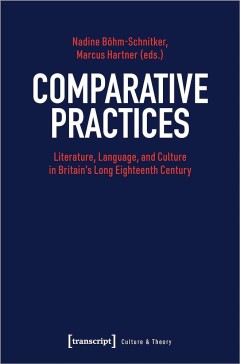
Comparative Practices : Literature, Language, and Culture in Britain's Long E…
Comparisons not only prove fundamental in the epistemological foundation of modernity (Foucault, Luhmann), but they fulfil a central function in social life and the production of art. Taking a cue from the Practice Turn in sociology, the contributors are investigating the role of comparative practices in the formation of eighteenth-century literature and culture. The book conceives of social pr…
- Edition
- -
- ISBN/ISSN
- 9783839457993
- Collation
- 226 halaman
- Series Title
- -
- Call Number
- 800 BOH c
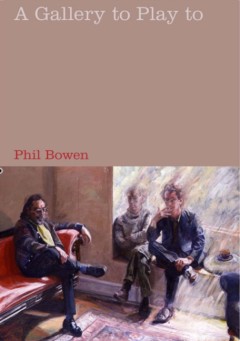
A Gallery to Play to The Story of the Mersey Poets
A Gallery to Play to is an intimate account of the lives and careers of the poets Adrian Henri, Roger McGough and Brian Patten. With unparalleled access to the three writers, Phil Bowen has written an indispensable book for anyone interested in poetry, popular culture and society over the last forty years.
- Edition
- -
- ISBN/ISSN
- 9781781386620
- Collation
- -
- Series Title
- -
- Call Number
- -
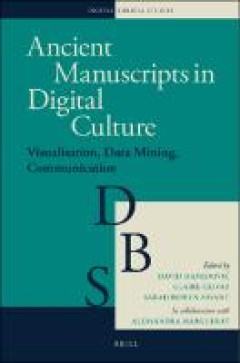
Ancient Manuscripts in Digital Culture: Visualisation, Data Mining, Communica…
Ancient Manuscripts in Digital Culture presents an overview of the digital turn in Ancient Jewish and Christian manuscripts visualisation, data mining and communication. Edited by David Hamidović, Claire Clivaz and Sarah Bowen Savant, it gathers together the contributions of seventeen scholars involved in Biblical, Early Jewish and Christian studies. The volume attests to the spreading of digi…
- Edition
- -
- ISBN/ISSN
- 9789004399297
- Collation
- -
- Series Title
- -
- Call Number
- -
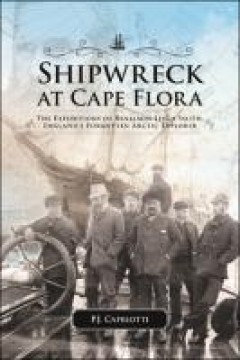
Shipwreck at Cape Flora: The Expeditions of Benjamin Leigh Smith, England's F…
Benjamin Leigh Smith discovered and named dozens of islands in the Arctic but published no account of his pioneering explorations. He refused public accolades and sent stand-ins to deliver the results of his work to scientific societies. Yet, the Royal Geographic Society's Sir Clements R. Markham referred to him as a polar explorer of the first rank. Traveling to the Arctic islands that Leigh S…
- Edition
- -
- ISBN/ISSN
- 9781552387122
- Collation
- -
- Series Title
- -
- Call Number
- -
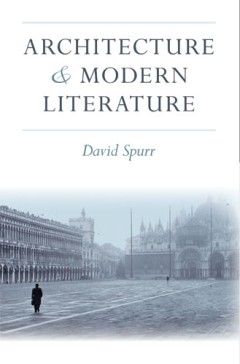
Architecture and Modern Literature
Architecture and Modern Literature explores the representation and interpretation of architectural space in modern literature from the early nineteenth century to the present, with the aim of showing how literary production and architectural construction are related as cultural forms in the historical context of modernity. In addressing this subject, it also examines the larger questions of the…
- Edition
- -
- ISBN/ISSN
- 9780472071715
- Collation
- -
- Series Title
- -
- Call Number
- 800 SPU a
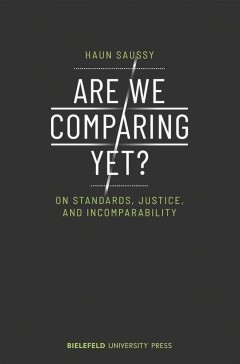
Are We Comparing Yet? : On Standards, Justice, and Incomparability
Debates about the possibility of an open culture - or indeed about the possibility of an open debate about the openness of culture - often turn on questions of standards. But since no benchmark can be absolute, judgement is a proliferation of comparisons.Through a series of case studies in everyday and academic comparison (literature, history, politics, philosophy), Haun Saussy calls out the ty…
- Edition
- -
- ISBN/ISSN
- 9783839449776
- Collation
- -
- Series Title
- -
- Call Number
- 306 SAU a
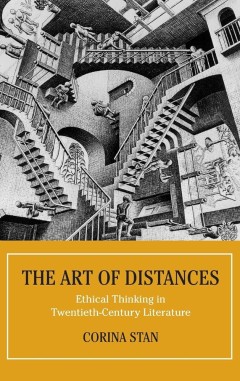
The Art of Distances : Ethical Thinking in Twentieth-Century Literature
The Art of Distances identifies a preoccupation with interpersonal distance in a strand of 20th-century literature that includes the work of Orwell, Morand, Canetti, Murdoch, Benjamin, Ernaux, Grass, and Galgut. Specifically, Stan shows that these authors engage in philosophical meditations on the ethical question of how to live with others and how to find an ideal interpersonal distance at his…
- Edition
- -
- ISBN/ISSN
- 9780810136861
- Collation
- 280 halaman
- Series Title
- -
- Call Number
- 800 STA a
 Computer Science, Information & General Works
Computer Science, Information & General Works  Philosophy & Psychology
Philosophy & Psychology  Religion
Religion  Social Sciences
Social Sciences  Language
Language  Pure Science
Pure Science  Applied Sciences
Applied Sciences  Art & Recreation
Art & Recreation  Literature
Literature  History & Geography
History & Geography